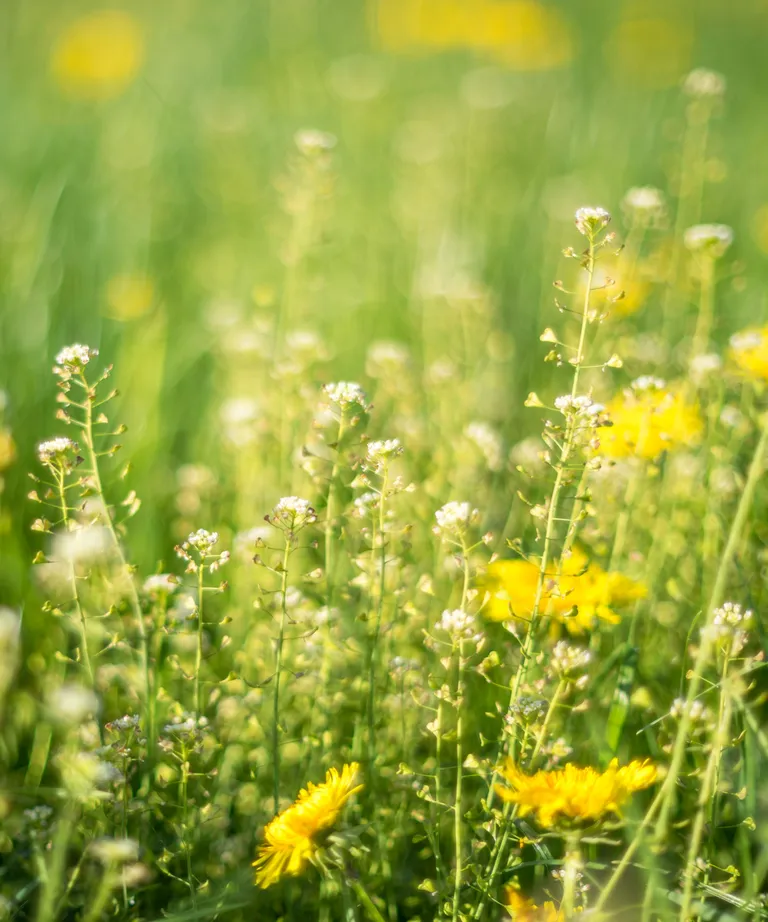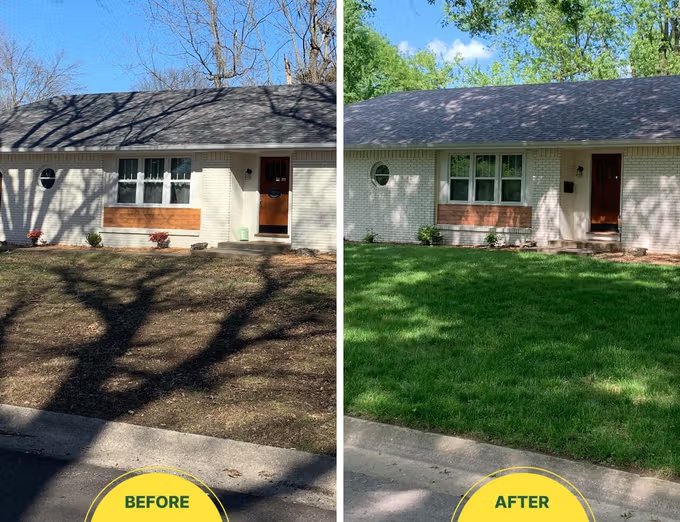Will Lime Kill Moss?
Last Updated on March 26, 2025 by Duncan
If you have been having moss on your lawn, you must have been told to apply lime on it to get rid of it, right?
As a curious person, you must be wondering, will lime kill moss? Well, the truth is that lime won’t kill moss. The good news is that it will reduce or slow its growth. To understand it better, here is how it works.
How lime works on moss
Lime (dolomite, Dolopril agricultural limestone, calcium carbonate) raises the soil pH. Low soil pH (acidic) increases moss development while reducing nitrogen availability to grass.
While applying lime on your moss-infested lawn does not directly affect moss (lime won’t kill moss), moss is less likely to grow due to the indirect influence.
A higher pH encourages turf grass growth and enhances nutrient availability. When you apply lime, it enriches the soil with calcium, a critical mineral for turf grass.
As a result of lime application, moss growth is reduced while grass thrives. Consequently, you eliminate the moss and have a green, healthy grass lawn.
How to treat lawn moss with lime
If you want to increase the soil pH to give moss a hard time growing on your lawn, apply the lime properly.
Before attempting to use lime as a moss control, find out the pH of the soil. Do not apply lime if the soil is alkaline or neutral or has a pH of 7 or higher.
If the soil is acidic or has a pH level of 5.5 or lower, apply lime. For the best results, use 50 lbs. of dolomitic lime per 1,000 square feet of garden surface.
For pH alteration, use the same amount of ground limestone and pelletized limestone or 10 pounds of burned limestone per 1,000 square feet or 20 pounds of hydrated limestone per 1,000 square feet.
Remember that burned and hydrated limestone can be dangerous and challenging to apply. For the best results, combine lime with soil.
Other ways to control moss
Since moss thrives in situations unfriendly to grasses, you should modify variables such as shade, soil, and water levels to control moss in lawns and increase turf grass growth.
Moss prefers more shade than grass. If moss in your lawn is outcompeting grass, add additional sunlight to the area by trimming large plants and mowing existing grass shorter to expose the moss to sunlight.
Moss can also survive compacted soil, whereas grass cannot. To support optimal grass growth, remove compacted grass and replace it with loose, well-aerated soil with a pH range of 5.8 to 6.5.
Reducing moisture by not irrigating too frequently helps to keep moss at bay. Shade helps moss from drying out, but it can also harm grass.
Do everything you can to reduce shade and increase the amount of direct sunlight on your lawn. This calls for you to remove or limb up trees, cut back shrubs, etc.
If the moss is growing in an enclosed area, such as an enclosed backyard, allow for adequate air movement to aid in drying the area. These enclosed backyards or narrow side yards rarely obtain enough air movement to dry the lawn’s surface.
This moisture can promote moss development, which you don’t want. You should remove or minimize obstructions that restrict airflow whenever possible.
If your lawn has plenty of thatch, remove it to control moisture buildup that would promote moss growth.
Removing moss from the ground by hand or raking it up is a definite way to control it, but it is also time-consuming and difficult.
When is the best time to apply lime?
The best time that you should apply lime is in the fall or early spring. There is enough rain at this time to activate the lime and allow it to penetrate the soil.
Applying lime during these times also allows the soil pH to correct before the busy growing seasons for your grass. The result is a less hospitable environment for moss.
What kills moss permanently?
Since lime won’t kill moss, you should look for chemicals to do that. The most common chemicals used are those that contain Iron sulfate as the active ingredient.
Treat moss when the temperature is between 45 and 65 degrees Fahrenheit for the best outcome. When you treat moss with the chemical, the moss will turn black and die.
When using chemicals, read the instructions carefully because some manufacturers recommend watering the areas before treatment while others propose irrigating them later.
You should avoid getting iron sulfate on concrete because it will discolor it. You also shouldn’t apply chemicals on rooftop moss.
Also Read:
Can you add too much lime to your lawn?
How to tell your lawn needs lime


